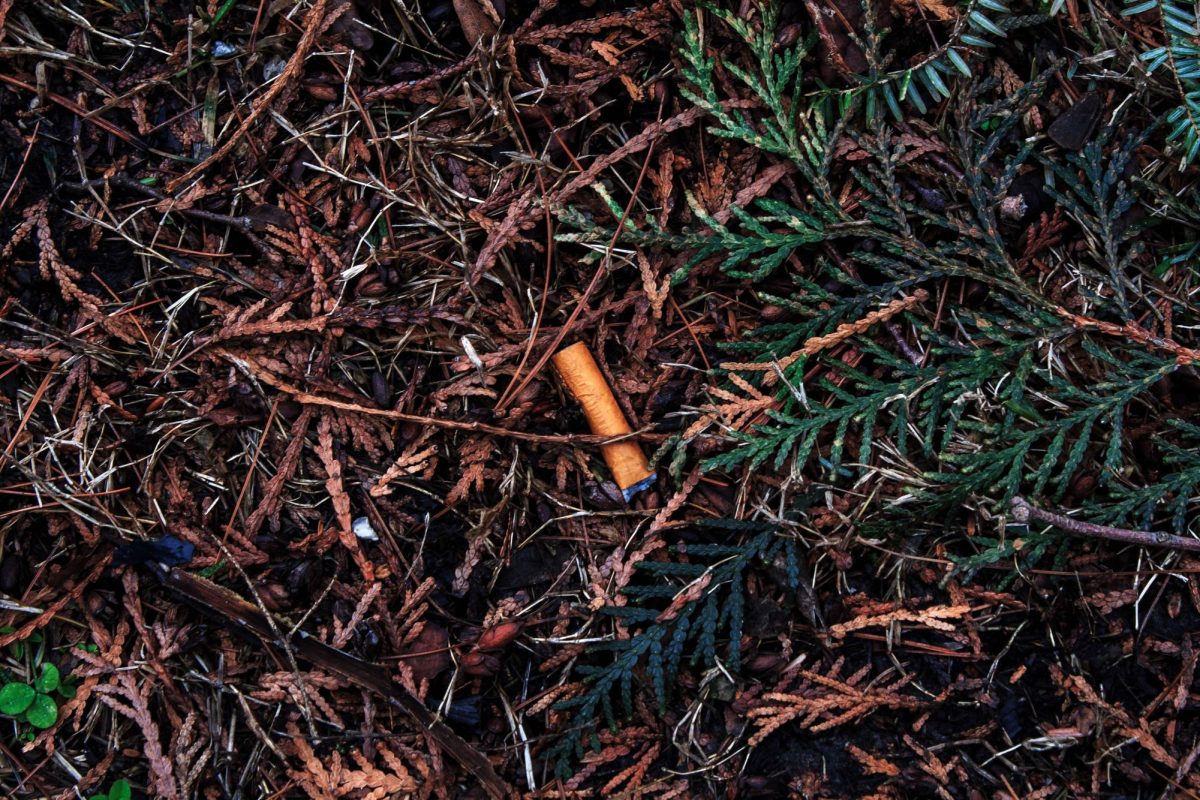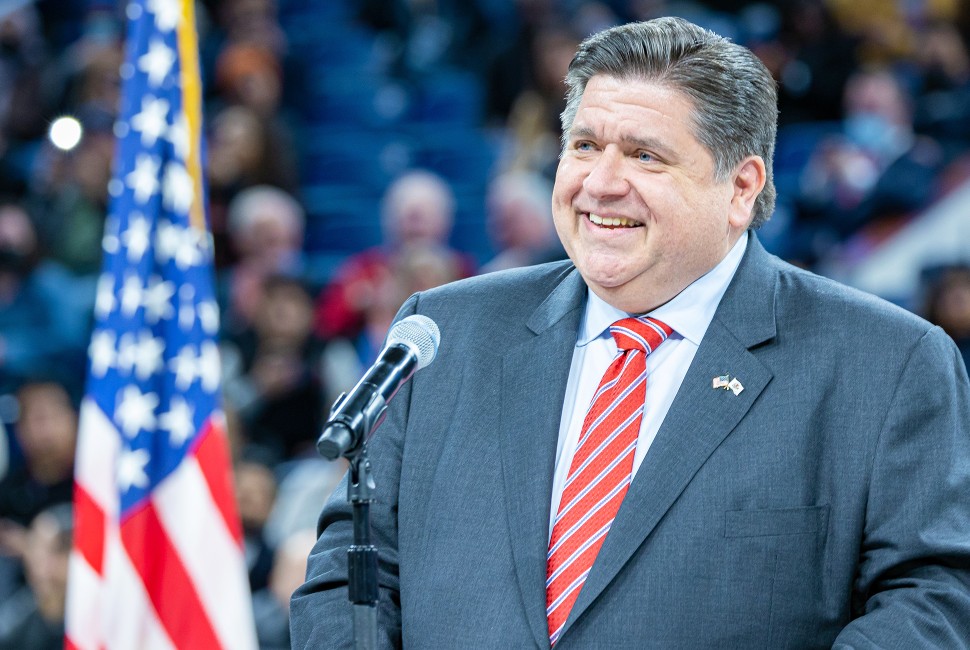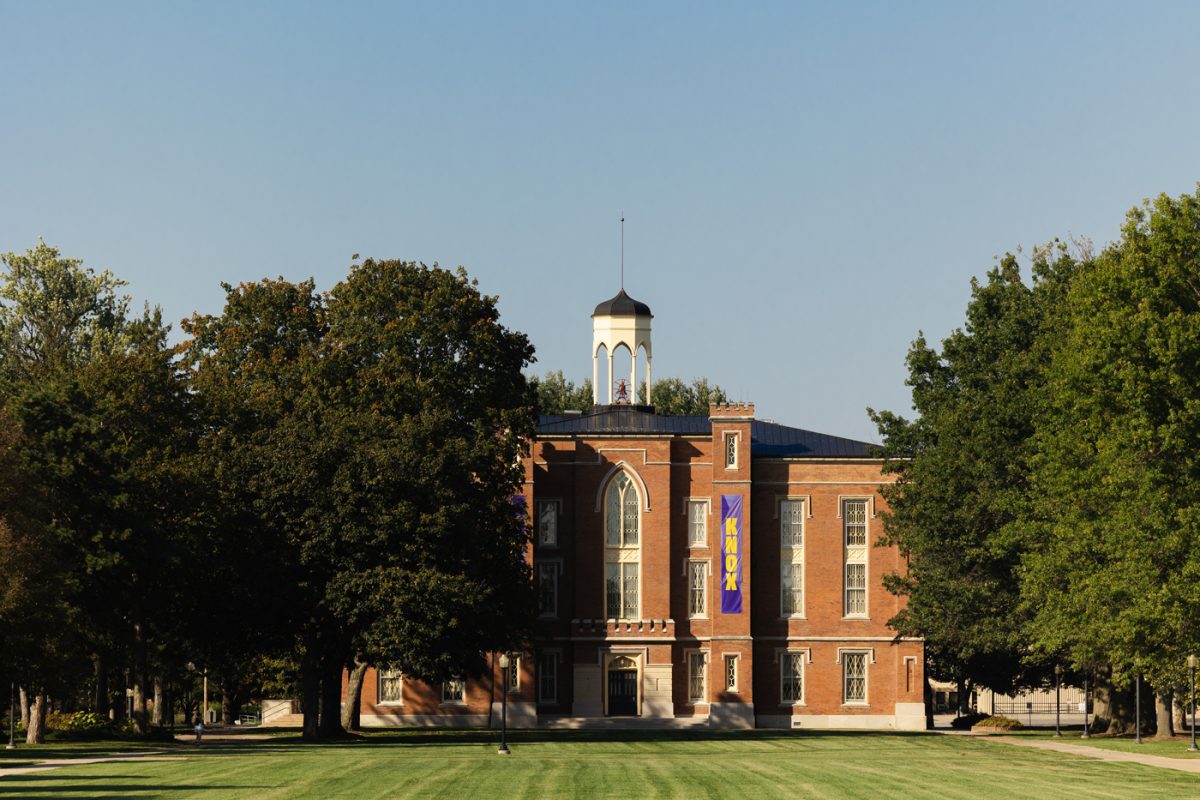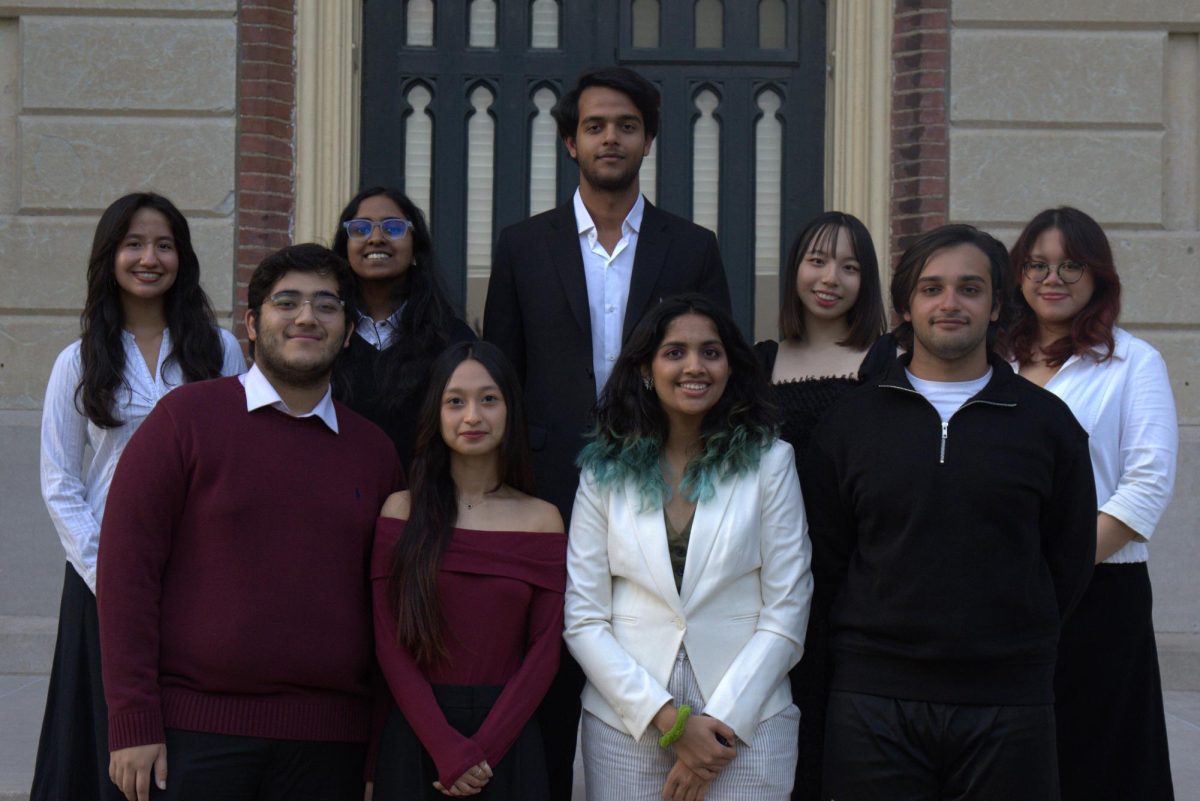In an email sent to students, faculty and staff on Tuesday, Feb. 6, Knox College announced an initiative named Promoting Lifelong Health at Knox. Over the next year and a half, the initiative aims to build a smoke and vape free campus policy to encourage a healthy campus.
While still considered an “initiative”, this policy will go into effect in June 2025 and will apply to everyone present on campus. The overall goal for the policy is to form a healthier campus specifically by discouraging the habit of smoking.
A smoke and vape free policy means that anyone on Knox College’s campus—students, faculty, staff, and visitors alike—would be expected to leave campus property if they wished to smoke.
“We all know the dangers of smoking and vaping. It causes health issues, mental health issues, sustainability and environmental issues,” Associate Director of Health Services Kristin Wight said.
Smoke and vape-free policies also “hold particular significance” for institutions which serve demographics that are disproportionately affected by tobacco use, as research shows that these communities have poorer health related to tobacco use. This includes racial and ethnic minorities, LGBTQ communities, individuals residing in low-income areas, military personnel, and individuals with mental health conditions.
Another reason for the policy, cited in the email, is the precedent smoking policies set by other colleges across the US.
“Many other institutions have this policy. They’ve had it for a very, very, very long time,” Vice President for Student Development Dr. Marquita Barker said.
As reported in the announcement email, more than 2,000 college and university campuses across the country are smoke free, and four states (Arkansas, Illinois, Iowa, and Louisiana) have laws that require smoke-free policies on public college campuses.
Because Knox College is a private campus, that law does not apply here.
Immediately following the email, a handful of posts were sent to the campus community on the anonymous social media app Yik Yak. Responses ranged from angry to confused to understanding.
“It seems more productive to just install and enforce designated smoking/vaping areas on campus than expect people to quit,” one comment said.
Dr. Barker also reported having heard dissent from members of the campus community.
“It’s not really going to ruin my life or anything, but it’s something I look forward to, to break up the day, a little downtime,” Dining Services employee Sarah Sazama said.
When federal law does not require lunch or coffee breaks, many employees rely on the “short break”, lasting five to 20 minutes, to provide a short break from the hustle and bustle of their job. Because these breaks are so short, federal law considers them to still be compensable work hours.
“I think that smoking for a lot of people especially in this country is a way of life,” senior Diya Goyal said.
As of 2021, the CDC estimates that 12% of Americans smoke cigarettes.
Goyal believes that a large percentage of the campus population are smokers (whether that is of nicotine or marijuana) and that this policy may motivate students to transfer or not attend Knox at all.
The proportion of smokers on campus is largely unknown, but Wight believes that more people are actually not smoking because of a greater awareness of the negative effects of it. Nationally, however, this does not appear to be the case, especially with the prevalence of e-cigarettes, or vapes.
In 2015, Hawaii became the first state to raise its smoking age to 21, setting off a national shift in states gradually raising their smoking ages to 21, in large part due to the teenage vaping epidemic.
By 2019, eighteen states and the District of Columbia had their minimum purchase ages at twenty-one. In December of 2019, former president Donald Trump raised the federal age for smoking to 21 in a further attempt to combat the vaping epidemic.
Goyal is also concerned about the consequences of taking away students’ right to smoke without any support.
“If they are trying to make Knox a smoke-free vape-free zone, they should at least start some kind of program to help people quit smoking,” Goyal said.
Goyal also suggested having designated areas for smoking instead of banning smoking altogether. Although designated smoking areas do already exist on campus, it is wholly unclear where they are or if smokers even use these spaces at all.
“I feel like as long as you’re the required amount of distance from entryways, you should have the freedom to smoke,” Sazama said. “And you know there are still going to be kids that smoke, how will they enforce [the policy]?”
According to Dr. Barker, Knox will enforce this policy just like they enforce the current smoking policy. For now, students may be able to smoke cigarettes while roaming around campus, but because Knox College is federally funded, they cannot smoke marijuana while on campus. Any students found doing so will find themselves in a meeting with Dean of Students Deb Southern.
In any case, the purpose of the smoke-free policy is not to penalize students for smoking, but rather to encourage not smoking at all, Dr. Barker said.
“I think it’s going to be counteractive mainly because people already smoke so much in their rooms,” senior Sitanshu Satapathy said. “They’re just going to do that more often now.”
Two comments on Yik Yak sent after the initiative was announced even encouraged students to begin smoking and vaping in their rooms.
One running joke among students at Knox revolves around the perpetual odor of marijuana present in the dorms. In the coldest winter months, many students choose to smoke inside their rooms or common areas rather than make the trek into the snow outside.
Smoking inside presents many concerns for the community, including the effects of secondhand smoke, and the residue left behind from smoke.
“The goal of the policy is to ensure the health of our campus and we hope students will not smoke in their rooms. This is already against the policy and presents other issues such as fire safety,” Wight said.
Policy enforcement and the possibility of students smoking in their rooms were not the only questions raised about this policy, because the exact phrasing and meaning of this policy has not been determined as of yet.
In the coming months, the campus community can expect to participate in policy development and will likely see their questions answered soon.
The proposal and ensuing development of the initiative began pre-2020. It may have been introduced prior to this year, however, Covid-19 presented challenges in the implementation.
In the process, Knox “consulted with many campus stakeholders,” the email said, some of whom include the Faculty Affairs Subcommittee, Staff Council, student groups, and the trustees board.
Moving forward, Knox will form a task force including faculty, staff, and students. This task force will carry out project activities for policy development and implementation, the email said.
Knox plans to conduct a campus survey to gauge the resources needed for the implementation of the initiative. As soon as next term, students can expect to see events and programs designed to bring further awareness to the policy.








